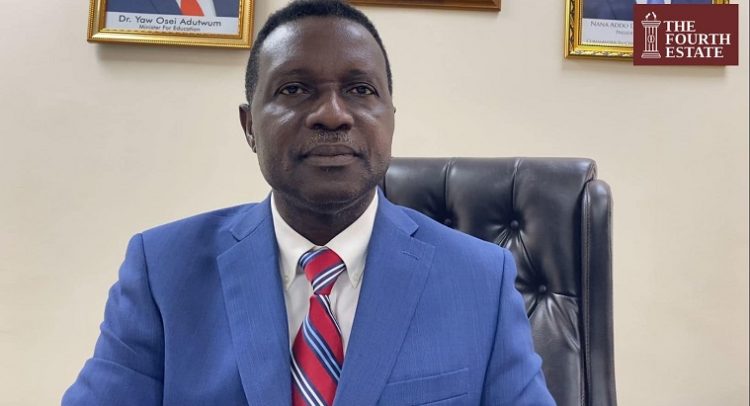Dr. Yaw Osei Adutwum
After months of deliberation and consultation with stakeholders, cabinet has finally approved the long-awaited Gifted and Talented Education (GATE) policy aimed at providing specialised education programmes for students with exceptional academic ability, creativity, or talent.
The policy will allow such specialised programmes to be offered to learners beyond the standard curriculum, which will provide challenging and enriching experiences that foster intellectual, social, and emotional growth.
Minister of Education, Dr. Yaw Osei Adutwum, presented the policy, highlighting its benefits for Ghana’s exceptional students.
“This policy will provide a platform for our gifted and talented children to reach their full potential,” he emphasised.
The GATE programmes typically cater to students who show advanced cognitive abilities, such as high IQ or exceptional problem-solving skills, exhibit creative talent in areas like art, music, or writing, and demonstrate exceptional achievement or potential in specific subjects, like Mathematics or Science.
Dr. Adutwum said the GATE education programme will address the long-standing gap in Ghana’s education system, which has historically overlooked high-ability children.
He explained that by introducing career pathways and new course offerings in Sciences and Arts from Junior High School to Senior High School level, the programme seeks to develop exceptional capabilities in gifted students.
He indicated that the Ghana Education Service (GES) and Technical and Vocational Education and Training (TVET) Service will collaborate to implement GATE, leveraging their special education divisions’ expertise.
According to him, this initiative aims to bridge the socio-economic gap, particularly in disadvantaged communities, including rural and Zongo communities.
“GATE programmes will be organised to positively impact disadvantaged communities, including rural and Zongo communities. Opportunity gaps for rural gifted students will be addressed through identification, assessment, programming, staffing, professional development, and policy,” he stressed.
The Education Minister pointed out that the key features of the programme include identification and assessment of rural gifted students, specialised programming, staffing, and professional development.
The rest are policy reforms to address opportunity gaps, designation of GATE schools at JHS and SHS levels, enriching experiences for qualified GATE students in their current school, as well as development of GATE pathways curriculum, instruction, and assessment by National Council for Curriculum and Assessment (NaCCA).
“Initially, newly established schools at the JHS and SHS levels will be designated GATE schools, enrolling 100% GATE students. Subsequently, qualified GATE students will be enrolled in GATE programmes at their current schools, receiving the same enriching experiences as their counterparts in GATE-designated schools,” he explained.
He disclosed that NaCCA will be tasked with leading the development of the Gifted and Talented Education (GATE) programme by designing GATE pathways curriculum, instruction, and assessment frameworks.
It will also establish guidelines for identifying and selecting students for the programme and create opportunities to increase participation from under-represented groups as well as develop guidelines for training and selecting teachers to lead GATE programmes.
This will ensure a comprehensive and inclusive approach to GATE programme implementation, he said and added that it will provide a supportive and challenging environment for gifted and talented students to thrive.
He said this specialised programme has the potential to unlock the full potential of Ghana’s gifted and talented youth, driving socio-economic growth and development.
“Countries that introduced GATE education in the 1960s and 1970s have benefited significantly from maximising socio-economic development through innovations and inventions.
“Ghana can follow suit by harnessing the potential of its gifted and talented youth. The Ministry expects the GATE programme to have major socio-economic impacts across the country,” he posited.
By Ernest Kofi Adu


